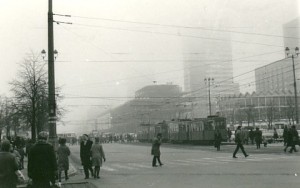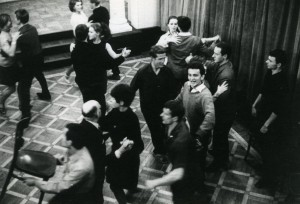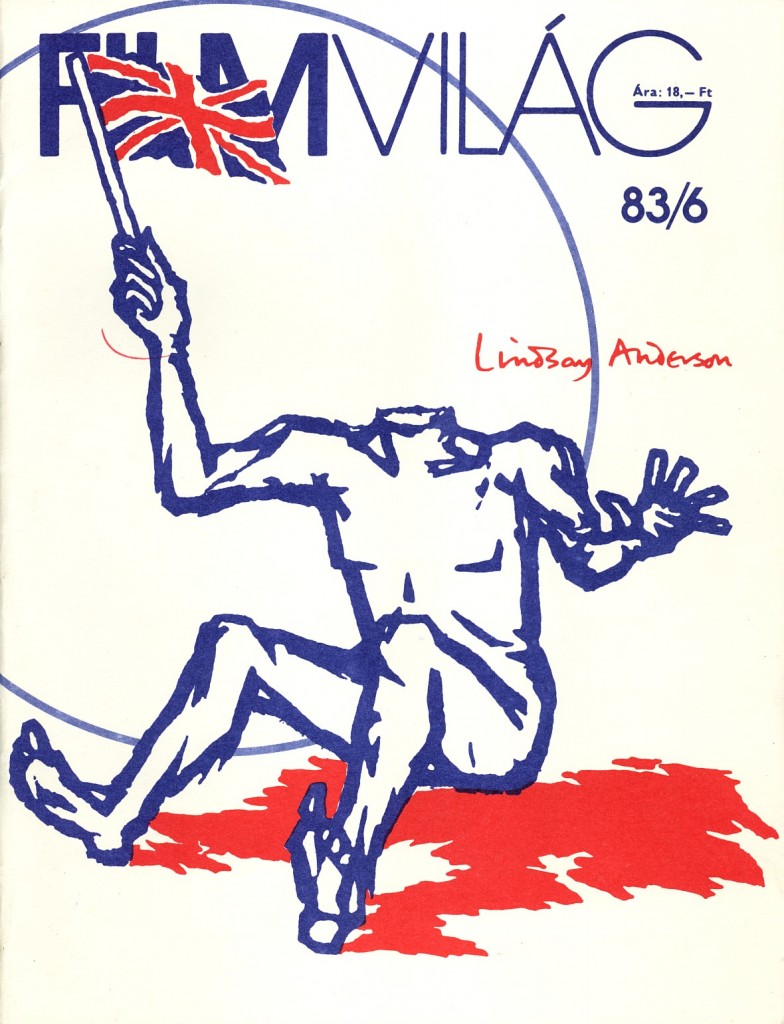This month the Filmoteka Narodowa (National Film Archives of Poland) is screening a season of Lindsay Anderson’s films in Warsaw. Anderson would no doubt have been delighted with this recognition for his work as he had a great affection for Poland and visited the country on many occasions. Evidence of Anderson’s Polish connections are scattered through his archive with diary entries and photographs providing a personal record of his visits to Warsaw (a search of our online catalogue will provide a full list of material relating to Poland in the collection).

Anderson worked as both a theatre and film director in Warsaw in the 1960s and the archive includes material relating to his Polish projects. In 1966 he directed a production of John Osborne’s play Inadmissible Evidence at the Contemporary Theatre in Warsaw starring Tadeusz Lomnicki. Anderson kept a detailed photographic record of the production and the collection also includes theatre programmes and posters and cuttings from the Polish press relating to the play.
Anderson returned to Warsaw in 1967 to direct a short documentary film, The Singing Lesson, at the invitation of the Warsaw Documentary Studio. The film featured a class of students from the Warsaw Dramatic Academy performing traditional Polish songs inter-cut with scenes of Warsaw life. Anderson’s initial outline for the film (in both English and Polish) is present, along with correspondence, photographs and promotional material.

Amongst the thousands of pieces of correspondence in the archive one of Anderson’s most cherished items was a letter written by the Polish director Andrez Wajda in December 1983. The letter was written by Wajda after seeing Britannia Hospital, Anderson’s blistering satire set in the chaotic surroundings of a dysfunctional British hospital. Panned by the critics and ignored by the cinema-going public on its release in the UK in 1982 Wajda’s warm praise for the film was much appreciated by Anderson, Wajda writing:
“I very much wanted to write to you. I saw Britannia Hospital in Paris. It is the most Polish film produced anywhere in the world in recent years. Being Polish, I completely understand the way you are using the facts of contemporary life and putting them on the screen. This is really Britain – the only one that truly exists. And it is also Polish through and through, amazing in its ideas…
As in every Polish masterpiece, there is twice as much material in it as there ought to be. It’s as if you were anticipating censorship and counting on it to shape your film by cutting it. Perhaps it’s a pity you’ve no censorship in England. Though really your film would be quite uncensorable: they’d just have to write the whole thing off as a loss – as we say over here. Quite simply the film is superb, and I wholeheartedly congratulate you for it.” (ref. LA 1/9/3/16/62)
